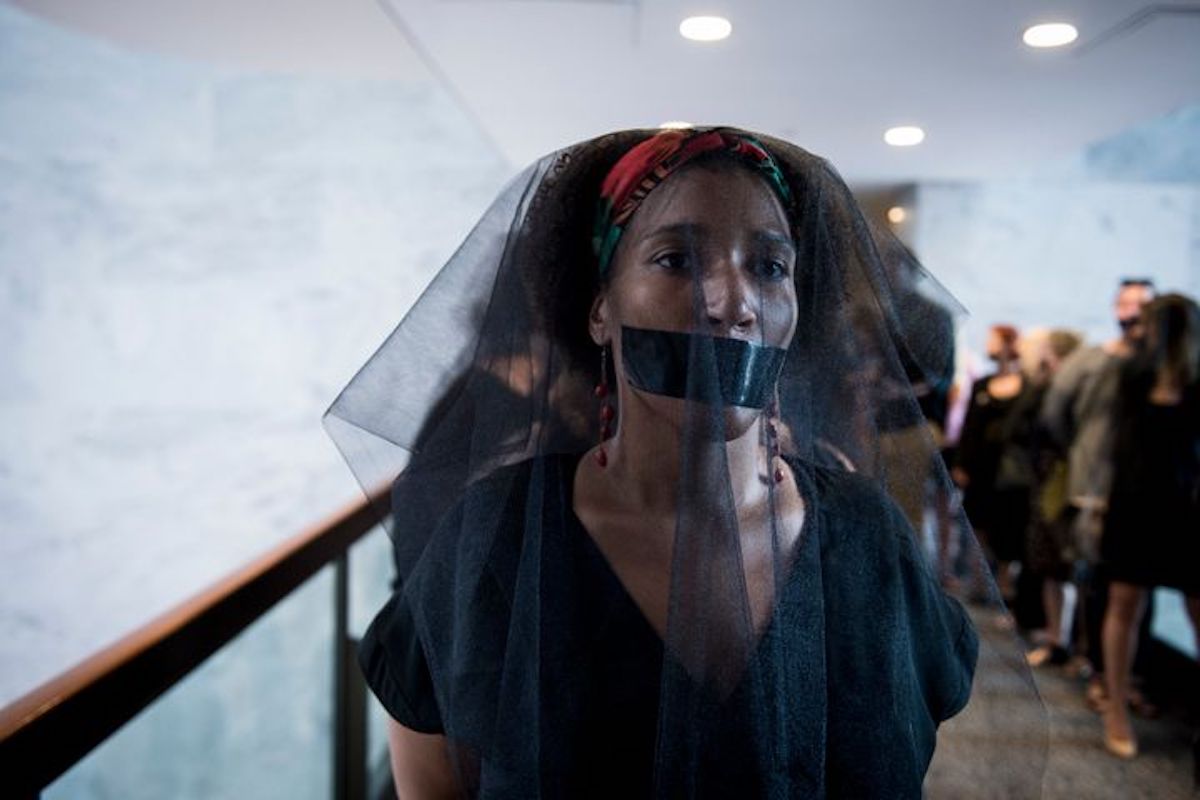A group of women wear black veils and black tape over their mouths outside of the fourth day of Brett Kavanaugh’s hearing before members of the Senate Judiciary Committee on Sept. 7, 2018. CONGRESSIONAL QUARTERLY VIA GETTY IMAGES. Featured Image
[dropcap]The[/dropcap] past several weeks have sparked an unprecedented conversation about women’s collective fury in this #MeToo, #WhyIDidntReport and post-Kavanaugh hearings era. Three recent books and a flurry of op-eds, essays and social media energy has everyone talking about rage in a brand new way. [mc4wp_form id=”6042″]
This is good news for women. But what’s been blatantly missing from mainstream dialogue is a nuanced understanding of how rage is perceived by and received from black women ― and whether this alleged new
Black women have been furious for decades, and our collective rage hasn’t exactly led to any revolutionary change in our lived experience. Quite the opposite: The “angry black woman” trope is a powerful tool that’s been used to dehumanize and silence black women for decades.



You must be logged in to post a comment.